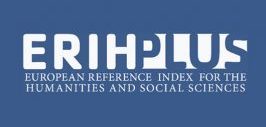Global Migration and Cultural Integration: An Anthropological Examination of Transnational Communities
Abstract
This research paper explores the intricate dynamics of global migration and cultural integration through an anthropological lens, focusing on transnational communities. With the acceleration of globalization and increasing human mobility, migration has become a key phenomenon shaping contemporary social, cultural, and political landscapes. The study examines the concept of transnationalism, where migrants maintain ties to both their countries of origin and host nations, navigating multiple cultural identities. Through a historical and theoretical framework, the paper analyzes the interplay between migration, cultural integration, and identity formation. Case studies of various migrant communities, including Latin Americans in the United States, South Asians in the United Kingdom, and African and Middle Eastern migrants in Europe, highlight diverse experiences of cultural negotiation, adaptation, and the challenges of integration. Additionally, the paper addresses the role of globalization in facilitating and complicating integration processes, as well as the social, political, and economic dimensions of migration. The research concludes by offering insights into the future of transnational communities and recommendations for policy frameworks that promote inclusive and sustainable integration strategies.
































